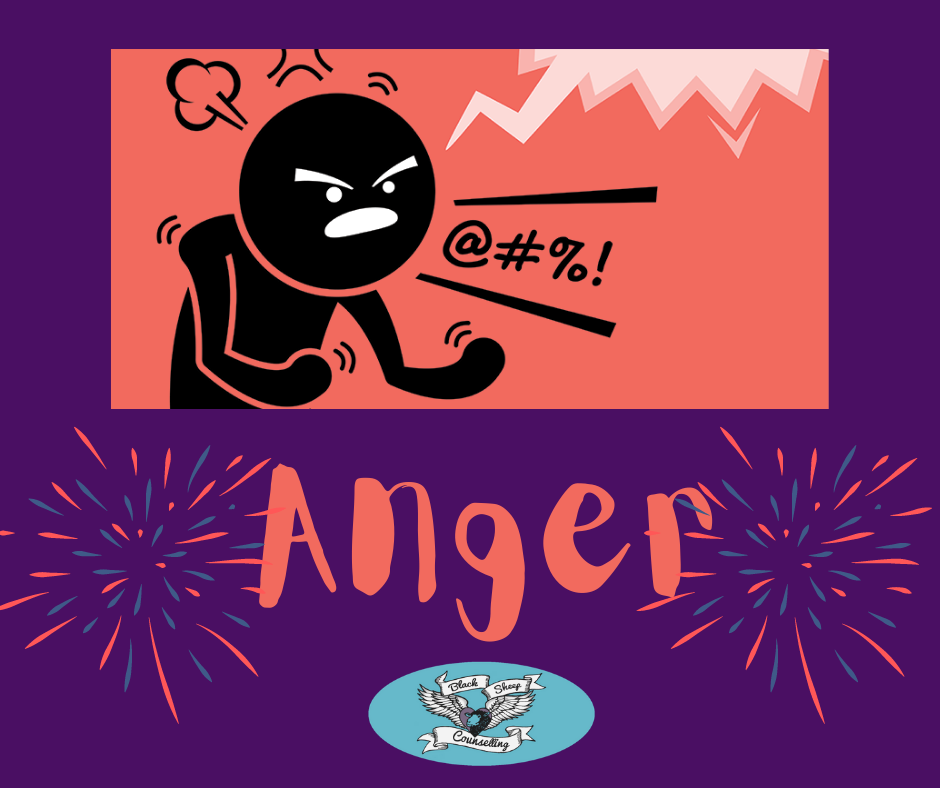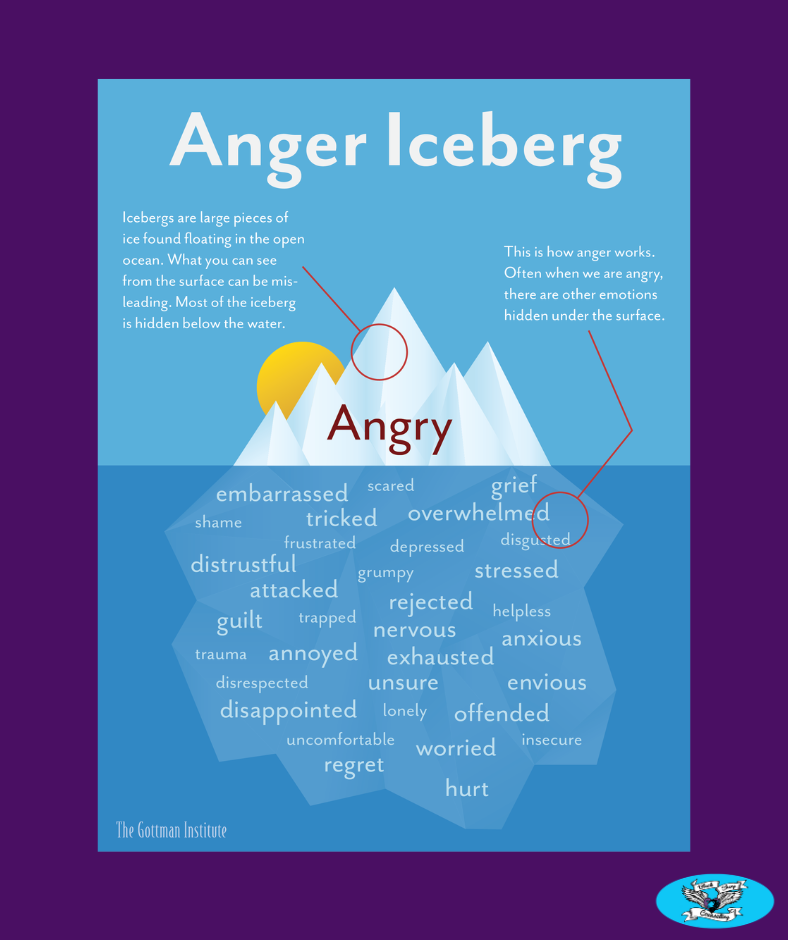Reframing Anger

Many of us have been led to believe that anger is a bad thing; a “sin”, even. Instead of viewing anger as a bad thing, it is helpful to recognize that anger is an intense reaction to an unmet need (think: a need for validation, a need to be understood, a need to have boundaries respected, a need for clarity, a need to move away from the feeling of overwhelm, et cetera). Anger is an important emotion that alerts us to something important such as the things we hold dear to us (our values, beliefs, sense of integrity, our priorities, our loved ones, our sense of safety) have been violated. Anger is considered a secondary emotion, meaning there are other uncomfortable emotions underlying it that has given rise to the presentation of anger. Trying to minimize or deny it is present will not get rid of it; instead, it will invoke the debilitating emotion of shame, which will increase anger.
The Gottman Institute’s Anger Iceberg image is a great tool to help identify what emotions might have given rise to anger. I recommend getting curious about anger ~ it is a source of valuable information that increases our awareness of Self and the world around us.

We can often feel blindsided by our anger. Because it was designed for survival, it feels all-encompassing and scary because it can create tremendous harm. It can also be a force of good. Feeling angry about injustices and violations create social, environmental, relational, and personal change (such as advocacy of Self and others, and learning to assert healthy boundary-setting).
In my therapy practice, I welcome anger from my clients. The emotion of anger (like all of our emotions) is part of our shared humanity. A healthy goal around anger is to resist aiming to rid ourselves of it, and instead, use it as an avenue to foster greater understanding (we are changing our relationship with it, not avoiding it). Expressing anger with a trusted other opens the door to personal awareness, helps identify our authentic selves (our values, beliefs, ethics), gives rise to self-compassion, and fosters healing.
If you were to embrace curiosity about your anger, what might it be telling you?

